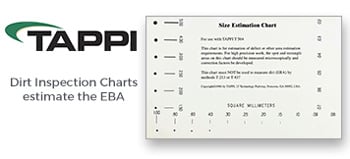Developing your estate plan
By Carter Kelley
These tips will help you develop a plan to protect the estate you have
worked hard to create.
You spend years growing your wealth and building your estate, so it is
just good sense to plan to protect your assets and pass them on to your
beneficiaries according to your wishes. When you are ready to sit down
with your financial professional and develop an estate plan, keep these
tips in mind.
Write a will. If you do not have a will when you die, the law of your
state may then determine what happens to your estate, your assets and
any minor children. In addition, the sate process, usually governed by
probate court, is often slow, sometimes expensive and open to the public.
Fund a living trust. Follow through if you set up a living trust. Until
you transfer ownership of property or assets to it, the trust is not worth
any more to you or your beneficiaries than the paper it’s printed on.
Unfortunately, many revocable living trusts are set up but are never funded.
Use both spouses’ applicable exclusion amount. Leaving all property
and assets to a spouse may avoid estate taxes at the death of the first
spouse, but this approach wastes the estate tax credit of the "first-to-die."
A credit shelter trust can maximize each spouse’s credit, thus sheltering
more assets from estate tax liabilities.
Re-title ownership of life insurance policies. Most life insurance policies
are owned by the insured, causing the policy’s face amount to be included
in that person’s estate at his or her death. Policy owners may consider
giving policies directly to the beneficiary or transferring the policies
to an irrevocable life insurance trust. Either strategy could help reduce
estate taxes.
Choose an appropriate executor. Naming an inexperienced family member
as executor could complicate the demanding task of settling your estate.
This is especially true at the difficult and emotional time following
a death. Consider the benefits of naming a professional organization to
follow through with the duties of an executor.
Organize your paperwork and files. If you do not provide your executors
and beneficiaries with all the paperwork or files pertaining to your property,
assets and wishes, improper distribution and management of your estate
may result.
Update your estate plan. Updating your estate plan from time to time
is important so that it is implemented exactly according to your wishes.
You will want to update your estate plan when there are changes in your
family (such as births, marriages, divorces, or deaths); when the value
of your estate significantly increases or decreases; when tax laws change;
if you move to another state; or if your business or career changes.
When you are ready to begin your estate planning strategies, talk to your
financial advisor. Be sure to consult your tax and legal advisors as well
before making any tax-related or legally related investment decisions.
About the author:
Carter Kelley is a senior vice president, financial advisor with Morgan
Stanley in Rancho Bernardo, California, USA.
This article does not constitute tax or legal advice. Consult your tax
or legal advisors before making any tax- or legally-related investment
decisions. This article is published for general informational purposes
and is not an offer or solicitation to sell or buy any securities or commodities.
Any particular investment should be analyzed based on its terms and risks
as they relate to your circumstances and objectives.
|





